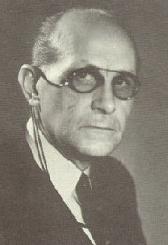A Quote by Wright Patman
There are many reasons why the general public doesn't really understand our monetary system. In the first place, money is something that people tend to get emotional about. After all, money involves, and always has involved, something closely akin to faith-which probably explains why in many past societies the money system has been in the hands of a priesthood, the subject of magical rites, and the ceremonial services of the tribe's medicine man.
Quote Topics
About
After
Always
Been
Closely
Emotional
Explains
Faith
First
First Place
General
General Public
Get
Hands
Involved
Involves
Magical
Man
Many
Medicine
Monetary
Monetary System
Money
Our
Past
People
Place
Priesthood
Public
Really
Reasons
Rites
Services
Societies
Something
Subject
System
Tend
Tribe
Understand
Which
Why
Related Quotes
What's happening is there's transfer of wealth from the poor and the middle class to the wealthy. This comes about because of the monetary system that we have. When you inflate a currency or destroy a currency, the middle class gets wiped out, so the people who get to use the money first, which is created by the Federal Reserve System, benefit, so the money gravitates to the banks and to Wall Street. That's why you have more billionaires than ever before.
When man has mastered money he shall have mastered not only his economic problem of prosperity but also his political problem, for he will see that money has no place in state functions, and, the money power being entirely in his own hands, he will easily master the state and clearly define its services. Thus money must be seen as the means of mastery of all economic and political problems. Until we have mastered money we shall not master any of our problems. Not money, but a false money system, is the root of all evil.
A private enterprise system needs some measuring rod, it needs something, it needs money to make its transactions. You can't run a big complicated system through barter, through converting one commodity into another. You need a monetary system to operate. And the instability in that monetary system is devastating to the performance of the economy.
I work with a lot of different charities, and by that I don't mean merely by giving money, but by really getting involved hands-on. I've always said that one of the reasons why I was put on this Earth was to help people. That's something I've always enjoyed both here in America and if I have the opportunity when I'm traveling out of the country. For example, I like to visit orphanages to spend time with the children. That's very important to me.
To walk in money through the night crowd, protected by money, lulled by money, dulled by money, the crowd itself a money, the breath money, no least single object anywhere that is not money. Money, money everywhere and still not enough! And then no money, or a little money, or less money, or more money but money always money. and if you have money, or you don't have money, it is the money that counts, and money makes money, but what makes money make money?
Over two thousand years ago, Aristotle taught us that money should be durable, divisible, consistent, convenient, and value in itself. It should be durable, which is why wheat isn't money; divisible which is why works of art are not money; consistent which is why real estate isn't money; convenient, which is why lead isn't money; value in itself, which is why paper shouldn't be money. Gold answers to all these criteria.
I think from an economics point of view, it is important that the money that is spent for health care is well spent - what is the cost-effectiveness of the money that is used? - because if the money is well spent, many people benefit from the system, and it is also a good market for finding employment. I do not see a reason why we should limit ourselves when it comes to very qualified and humane employment opportunities if there is no waste and if there is medical need.
The German system is way less fair than it is expected to be, and the difference is becoming bigger. The private system, with its privilege to pay doctors and hospitals better, is basically putting the whole system at jeopardy, because many first-class hospitals and first-class physicians are wasting their time on trivial cases of privately insured and are no longer accessible for the difficult cases from the public system, despite [the fact] that the hospitals and also the education of those professionals is paid for by public money.
Under Sharia law, If a woman has money, she can invest her money. The thing is, what we are concerned about is, in the public arena, there's a difference between a man and a woman. We would have complete segregation in the public arena, but other than that, if she wants to go to the market, if she wants to go to visit her relatives or for medicine or for education. There's a whole host of reasons why she would be out and about but, what we are saying is she not obliged to work. That is the job of the man.
For many years, we have had these campaign finance reforms, and they have been failures. Money is more coursing through our system than ever before. Incumbents have used the laws to advantage themselves. And one of the reasons I think they have been failures is we have tried to crush down the money in places like the political parties, and it has squished out into opaque super PACs and sort of hidden channels.
































